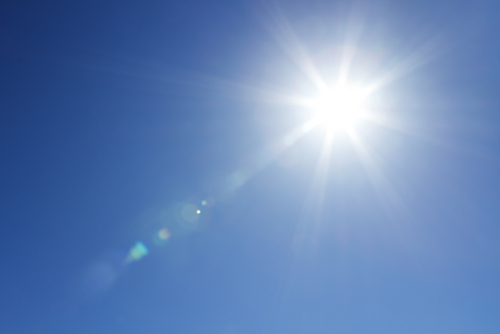As we head towards the start of winter, which starts for meteorologists on 1 December, there’s always a great deal of media and public speculation about what weather we might have in store.
To answer that question, we need to look beyond the UK. The worlds’ weather is interconnected, and there are certain large-scale global drivers, which we know have influences on UK weather at this time of year – so what are these doing at the moment?
, which sees unusually warm sea surface temperatures across the tropical Pacific and can increase the risk of cold winter conditions in the UK, has been much discussed after initial signs of development earlier this year.
Its progress has been slow, however, and while there remains a good chance of a weak event by the end of the year it is also possible that El Niño conditions will remain neutral. In any case, this factor is not expected to be strong enough to exert much influence on weather patterns in Europe during the next three months.
The North Atlantic Oscillation (NAO) describes differences in the usual pressure patterns over the North Atlantic – with positive and negative phases.
A positive phase is thought more likely than a negative one on average over the next three months. This is characterised by enhancement of the westerly winds across the Atlantic which, during winter, brings above-average temperatures and rainfall to Western Europe.
As we head later into winter, confidence about the heightened likelihood of positive NAO reduces – suggesting chances of drier and colder conditions return closer to normal.
The Quasi-Biennial Oscillation (QBO) sees high level (stratospheric) winds over the equator change from westerly to easterly phases – and it’s currently in the latter of the two.
In winter months this can lead to a greater incidence of high pressure blocking patterns over the northern hemisphere, which would increase the probability of colder and drier weather across Europe. Essentially this is providing an opposite signal to the NAO.
There are other factors to consider too. For example, Arctic sea ice extent is slightly below average but as yet it is not clear whether this might have an impact on weather patterns in the UK.
No single one of these drivers will determine the UK’s winter on its own – instead they all interact together to govern the weather trends we can expect over the coming months.
Disentangling these different influences remains a challenging area of science which the Met Office is improving all the time, but detailed and highly certain UK outlooks are not possible over these timescales.
The Met Office’s long-range outlooks give probabilities based on scenarios of being considerably wetter or drier, colder or milder than usual.
Currently the outlook for December 2014 to February 2015 suggests that milder and wetter than average winter conditions are slightly more likely than other outcomes. However, compared to day-to-day weather forecasts, the probabilities are much more finely balanced – for example, the outlook gives a 1 in 4 chance of the mildest scenario and a 1 in 10 chance of the coldest scenario. These numbers suggest it would be a mistake to interpret the outlook for a very mild outcome as ‘highly likely’; likewise very cold conditions cannot be ruled out.
The outlook gives similar probabilities for precipitation (rain, hail, sleet and snow), with the chances of the wettest scenario being 1 in 4 and the chances of the driest around 1 in 10.
These three month outlooks cover a whole three month period, taking into account both day and night, as well as the whole of the UK. This means that even in the event of, say, an overall mild winter we could still see spells of cold or very cold weather.
With this in mind, what exactly we’ll see for the winter ahead remains uncertain. In terms of strong winds, heavy rainfall, cold snaps or even snow, while longer-range outlooks can give us general tendencies, the details can only be predicted by our day-to-day weather forecasts.
The Met Office’s accuracy over all timescales is world-leading, however, so you can trust that we’ll keep everyone up-to-date with all the latest information on the weather whatever the winter has in store.
© Met Office





